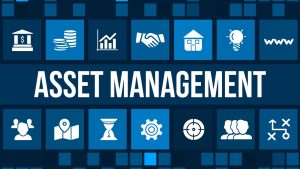Anyone can become a property manager. For example, consider that there is a property owner who has two properties, both of which are given for rent. They will have two choices: either become the property manager or let a professional property manager take over. This means a property owner with no prior experience can also become a property manager. While the workload for managing a house given for rent is less hectic, an owner who decides to manage multiple properties and pursue a career in property management may find it difficult. Alternatively, professional property managers who run a business by handling numerous units for property owners may struggle to keep up due to the lack of complete real estate knowledge.
It is essential to understand that managing a property is not easy and is not a ‘buy-it-and-forget-it venture’. The higher an apartment complex is built, and the more units it has, or the higher the number of properties a person manages, the more people and errands a property manager will need to overlook. Because it is a constantly challenging field, property managers must hone their skills and learn on the job. From being a great communicator to staying up-to-date on things in real estate, finding responsible tenants, and organising your backend operations, a property manager must always be on their toes.
Tips That Property Managers Should Keep in Mind
Managing a property not only includes the exchange of contracts and ensuring that the rent is paid. A property manager must also understand that correspondence will be required for maintenance and that there will be instances where they will have to incur capital expenses. Failure to do so could mean termination of the contract, resulting in losses, whereas delays in executing building repairs may result in lawsuits for negligence. To avoid all this, here are a few tips that property managers should keep in mind.
Be the Most Organised With Technological Solutions
By integrating digital solutions, not only will all departments across the company be organised, but even minute tasks such as templates required for tenant complaints can be systematically made. Whether it’s having records of rent payment, inspection paperwork, security deposits, eviction and lease violations, get it all digitalised and reduce the company’s reliance on paper. Hence, keep track of each property through an online system with just one click.
Keeping Up With Marketing Trends
Finding standardised properties is an equally challenging task. Since property owners look for property managers online, it is crucial to have an online presence. Moreover, networking with other property managers is a great way to stay on track with trends in the industry. Be observant and learn from the mistakes competitors in the industry have made to avoid facing the same issues in real estate. Hence, a good property manager will constantly be looking out for potential risks that could arise and take measures to avoid them. This is also a great way to escape the infamous complacency trap.
Get a Lawyer to Avoid Mistakes in the Legal Arena
There should be a lease in place in relation to the legal contract. If you have a good lawyer, the lease should represent a flowchart, demonstrating various problem situations and the conditions that must be met for the tenant to hold the landlord into account. This is also known as the boilerplate clause, which provides a sense of security to property managers when written clearly and precisely.
Moreover, leases may have clauses that deal with capital expenses. In other words, precise wording should be used to indicate what situations maintenance is provided, for what items, who pays for it, and how it is paid. Property managers can simply let a lawyer handle all these legal aspects. As a property manager who must also look into the overall operations of all properties, leave this part to the experts.
A People Pleaser or a People Person?
However, a characteristic that should not change in any circumstance is being a people person. The property manager must directly communicate with tenants in carrying out their primary responsibilities. As a result, a property manager is required to be approachable, diplomatic, value human connections and give the feeling that their tenants are, in fact, in a gated community. In essence, a property manager’s positive and friendly attitude is integral to their success.
Manage All Your Properties Will Little Effort
The success of every property-centric player depends on implementing a Property Management System solution. Not only does it easily automates repetitive tasks related to administration and finances, but with data centricity and analytical accuracy, property managers can now make informed decisions much faster. Considering that digital technology is integrated into all industries, the rising power of APIs and artificial intelligence can only mean that such a solution will help property managers surge ahead of the competition and be more efficient in all their operations. This gives property managers ample opportunities to socialise or get new tenants and property owners, thereby letting them focus on important roles to achieve their corporate goals. Therefore, will you invest in a Property Management System, or will you stray behind?






